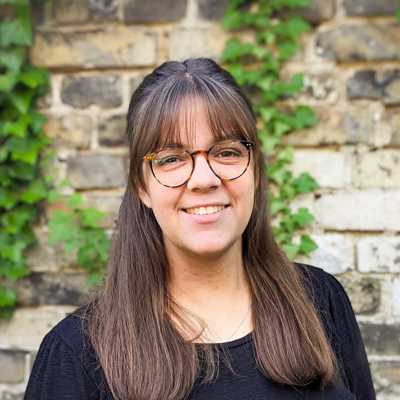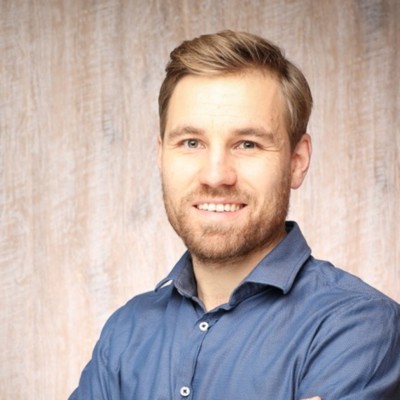7. June 2024, 13:30 – 15:30 Uhr
Students-as-Partners in the Tales of Tomorrow - International Perspectives
As members of the HFD delegation trip, we offer an interactive workshop aimed specifically at all university stakeholders who have had Students-as-Partners in mind for some time, but do not know how to implement the concept well at their university, in their teaching or in student circles. Our workshop inputs are just as diverse as the topic!
- They come from national and international student think tanks (e.g. ehs student change maker), lecturers (e.g. Prof. Nicholas Allen, Royal Holloway University) & people from many areas of higher education development (e.g. Richard Bale, Student Shapers Programme, Imperial College)
- We work according to the theme café method, the participants can choose to work in thematic areas according to their interests, these thematic areas are led by 1-2 members of the delegation trip.
-After a joint impulse round (short impulse presentation with insights from the delegation trip and a whispering round of approx. 25 minutes), we work in three themed cafés.
Thematic Café 1 deals with the question of how much Students as Partners students actually want and what room for manoeuvre they consider important at universities.
Thematic Café 2 looks at the role of teachers in the Students as Partners approach and Thematic Café 3 focusses on participatory learning space design.
By incorporating techniques from the field of
Liberating Structures, all participants have the opportunity to identify concrete steps to implement aspects of ‘Students-as-Partners’ at their own university, i.e. to leave this workshop with their own road map.
The results are recorded on task cards so that all participants can also learn about the results of the other topic tables and network further.
Outcome/impact: The workshop focusses on students-as-partners as a university strategy at departmental and module level.
Literatur: Cook-Sather, A., & Abbot, S. (2016). Translating partnerships: How faculty-student collaboration in explorations of teaching and learning can transform perceptions, terms, and selves. Teaching & Learning Inquiry, 4(2), 1-14. Retrieved from https://journalhosting.ucalgary.ca/index.php/TLI/article/view/57440/43209. Healey, M., Flint, A., & Harrington, K. (2014). Engagement through partnership: Students as partners in learning and teaching in higher education. York: Higher Education Academy. Retrieved from https://www.heacademy.ac.uk/engagement-through-partnership-students-partners-learning-and-teaching-higher-education Mezirow,J. (1990). "How Critical Reflection Triggers Transformative Learning." In: J. Mezirow, "Fostering critical reflection in adulthood. A guide to transformative and emancipatory learning." Jossey-Bass Publishers, San Francisco 1990, p. 1–20. Fthenakis, W. (2021). “Kritisches Denken als Kompetenz der Zukunft”. In: Meine Kita, vol.04, p. 6-8, 2021. Weimann-Sandig, N. (2023). students as partners - ein ganzheitliches Lehr- und Organisationsentwicklungskonzept. In: Building Bridges in Distance and Higher Education - Erkenntnisse aus dem BediRa-Barcamp 2022. ehs-Schriftenreihe 5/2023, S. 37-41. https://nbn-resolving.de/urn:nbn:de:bsz:14-qucosa2-839488 Zybura, T.;Pietsch, K. „Unconditional teaching oder wie Lehrende zu Verbündeten der Studierenden werden, in: HFD Blog, 2022. Online available at: Unconditional Teaching: Wie Lehrende & Studierende sich verbünden (hochschulforumdigitalisierung.de)
Methode: Digitales Workshopformat
Speaker:innen
 Nina Weimann-Sandig
Nina Weimann-Sandig
Prof. Dr. Nina Weimann-Sandig, Ev. Hochschule Dresden Ronny Röwert
Ronny Röwert
Head of Innovative Learning at Wissenschaftszentrum Kiel Saskia Junge
Saskia Junge
Wissenschaftliche Mitarbeiterin, Ev. Hochschule Dresden Franz Vergöhl
Franz Vergöhl
HafenCity Universität | SDG-Campus Bonny Brandenburger
Bonny Brandenburger
Doktorandin Weizenbaum-Institut für die vernetzte Gesellschaft und Universität PotsdamThink Tank
Studentisches ThinkTank vom BediRa Projekt ehs Dresden
Track
Structures & Strategies
Raum
Digital 4
Sprache
EN
Format
Workshop

